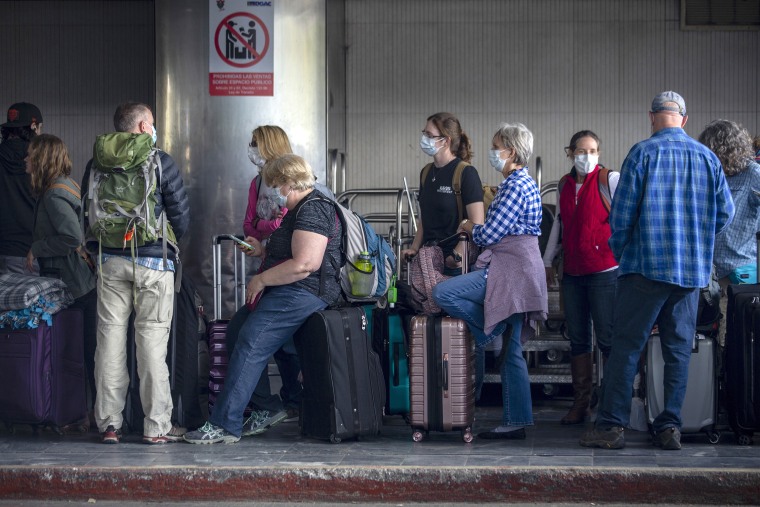More than 24,000 Americans remain stuck overseas and need help to get home, but assistance may be increasingly hard to come by, authorities said Wednesday.
Since the start of the COVID-19 outbreak, the State Department has helped more than 30,000 Americans stranded in 60-plus countries board 375 U.S.-bound flights, officials said.
While Washington will continue working to bring Americans home, Ian Brownlee, who leads the State Department's repatriation task force, signaled for the first time Wednesday that the clock's ticking for U.S. citizens to seek help.
"If you're on the beach when an earthquake struck, you wouldn't just stand there waiting for the coming tsunami. You would head for higher ground immediately," Brownlee said. "Well, in this case, the earthquake has happened. It's time to seek higher ground now and not hope for rescue later."
Full coverage of the coronavirus outbreak
Brownlee urged Americans overseas to reach out to their local consulates. If U.S. citizens are unsure about wanting to come home, they should err toward returning, officials said.
"We are finding people who we get in touch with in the countries around the world who say: 'Well, we'll see. We'll see. Doesn't look so bad now. We'll get back in touch with you in a few weeks,'" Brownlee said Wednesday.
"They need to decide. Are they ready to ride this out where they are? If the answer to that question is 'I don't know,' [then] come on in and talk to us, and we'll help you get home now."
As the COVID-19 pandemic continues to grow, many countries are implementing travel restrictions, mandatory quarantines and border closures with little or no notice.
U.S. citizens are particularly struggling in Peru, where many are trapped in hostels and hotels as the country's sudden and strict quarantines have prevented them from leaving.
"We're working very closely with the central government in Peru, health authorities at both the provincial and the municipal level, to seek to move those people out," Brownlee said. "I can't go into specific cases for privacy reasons, but we've had some success, and we're looking forward to the future."
And in Africa, more than half of the continent's 57 international airports either are closed or are operating under restrictions.
Download the NBC News app for full coverage and alerts about the coronavirus outbreak
"Every repatriation flight is being negotiated by the country team on the ground on a case-by-case, flight-by-flight basis and in a great number of the countries involved," said Dr. William Walters, deputy chief medical officer for operations in the State Department's Bureau of Medical Services, who is involved in the efforts.
South Asia and Central and South America are among the other locations where overseas Americans are seeking the most help.
"I think we've been very, very successful," Brownlee said. "And we will continue this effort until we achieve complete success or until our options are cut off."


